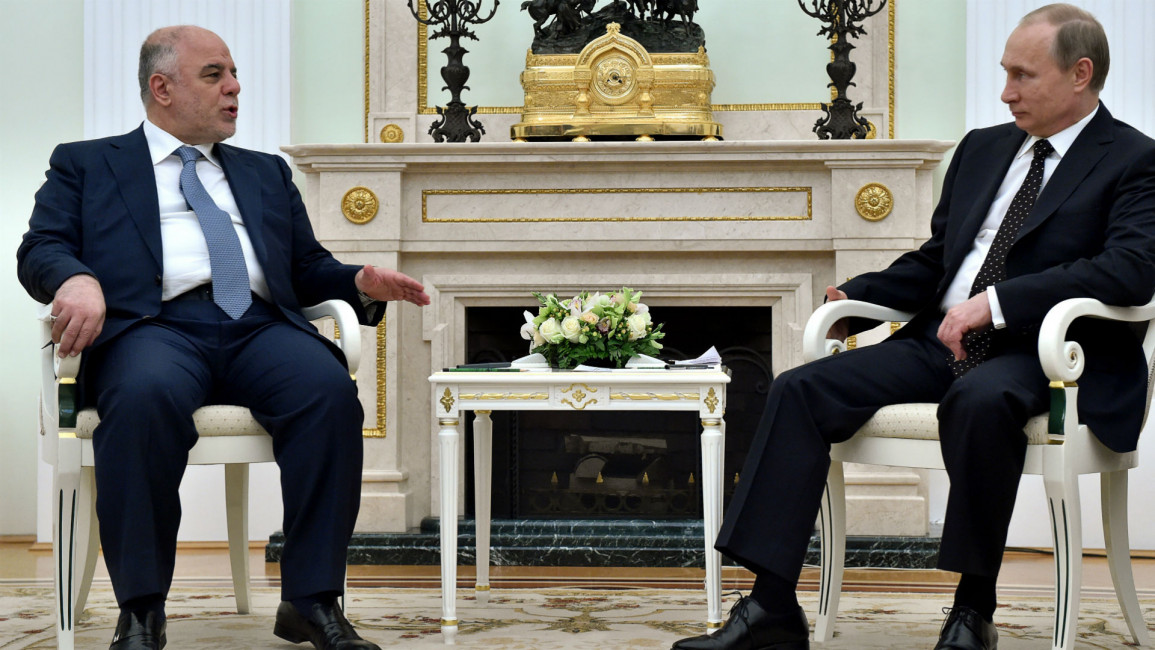Iraq to share intelligence with Iran, Syria and Russia
The Iraqi military has announced an agreement on "security and intelligence cooperation" with Russia, Iran and Syria to help combat the Islamic State group.
In a statement released Sunday, Iraq says the coordination will "help and cooperate in collecting information about the terrorist Daesh group," using the Arabic acronym for the Islamic State group.
Iraq has long had close ties with neighbouring Iran and has coordinated with Tehran in fighting the advance of IS which controls about a third of Iraq and Syria. Iranian commanders have helped lead Iraqi Shia militiamen in combat.
Russia has stepped up its military involvement in Syria in recent weeks while pressing for Damascus to be included in international efforts to fight Islamic State, a demand Washington rejects.
Russian news agency Interfax quoted a military diplomatic source in Moscow as saying the Baghdad coordination centre would be led on a rotating basis by officers of the four countries, starting with Iraq.
The source added a committee might be created in Baghdad to plan military operations and control armed forces units in the fight against Islamic State.
The Russian defence ministry declined to comment on the reports.
By raising the stakes in Syria's four-year-old civil war, Moscow has prompted Washington to expand diplomatic channels with it.
Western officials have said US Secretary of State John Kerry wants to launch a new effort at the UN General Assembly this week to try to find a political solution to the Syrian conflict.
Diplomacy has taken on new urgency in light of Russia's military build-up in support of Syrian President Bashar al-Assad and a refugee crisis that has spilled into Europe.
Critics have urged US President Barack Obama to be more decisive in the Middle East, particularly towards the Syrian conflict, and say lack of a clear American policy has given Islamic State opportunities to expand.
A Russian foreign ministry official told Interfax on Friday that Moscow could "theoretically" join the US-led coalition against Islamic State if Damascus were included in international efforts to combat Islamic State and any international military operation in Syria had a United Nations mandate.
Iraqi officials on Friday had denied reports of a coordination cell in Baghdad set up by Russian, Syrian and Iranian military commanders aimed at working with Iranian-backed militias in Iraq.
The armed groups, some of which have fought alongside troops loyal to Assad, are seen as a critical weapon in Baghdad's battle against the militants of Islamic State.
Iraqi Foreign Minister Ibrahim al-Jaafari said in New York on Friday that his country had not received any Russian military advisers to help its forces but called for the US-led coalition to bomb more Islamic State targets in Iraq.



